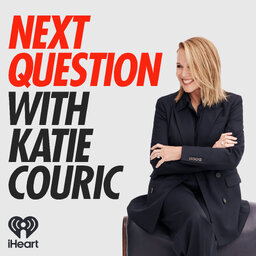Under the cover of anonymity people feel emboldened to say hateful things online, which can be hurtful when you are the target. New York Times Deputy Washington Editor Jonathan Weisman explains why he quit Twitter over anti-Semitic bullying -- and why he returned. And Richard Cohen, president of the Southern Poverty Law Center, says that for every big win against hate speech there is inevitably a backlash. Plus, we ask folks in Times Square to tell us their stories of being bullied online.
Learn more about your ad-choices at https://www.iheartpodcastnetwork.com
 Next Question with Katie Couric
Next Question with Katie Couric


